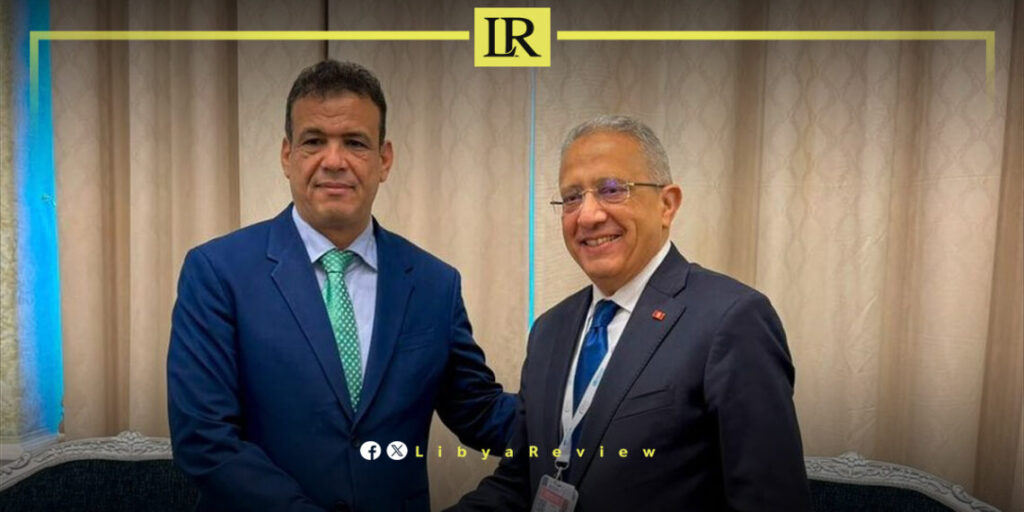NATIONAL SECURITY ISSUES
-
Italian Prime Minister Giorgia Meloni criticised a statement by the German NGO Sea-Watch, which labelled the Libyan and Tunisian coast guards as “real human traffickers.” Speaking before the Italian Senate on Tuesday, Meloni called the statement “shameful.” Meloni praised countries like Tunisia and Egypt for their role in reducing irregular migration flows by 60% by 2024, as reported by Italian media. She stressed the importance of cooperation with these nations in managing migration. NGOs frequently criticise the treatment of migrants in Tunisia and Libya, describing it as “inhumane.” In June, Sea-Watch released a video showing Libyan coast guards beating migrants with batons after they were rescued by a commercial vessel.
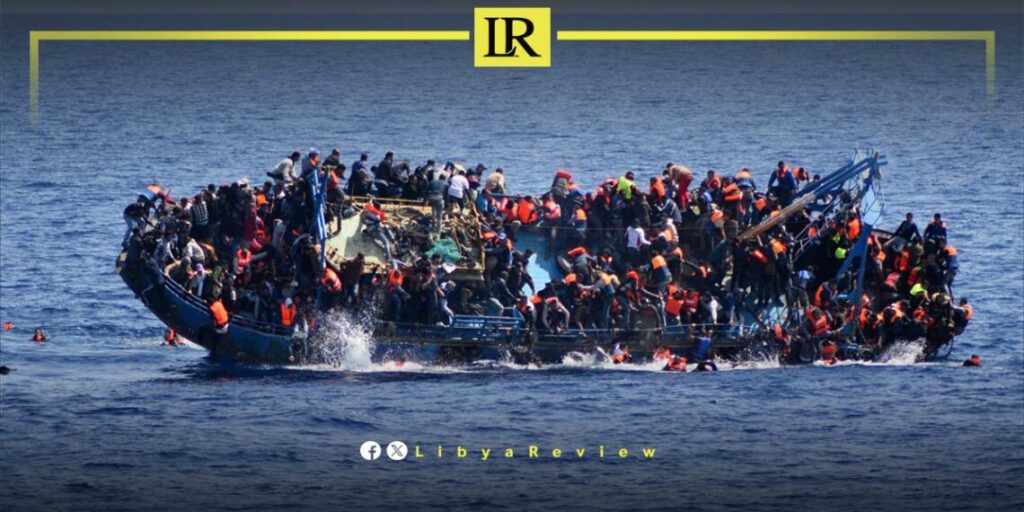
- More than 60% of the migrants who arrived in Italy in 2024 departed from Libya, according to Nova news agency. A total of 33,349 migrants reached Italy from Libya, accounting for 60.1% of the 54,577 total arrivals. In comparison, 17,309 migrants, or 31.7%, arrived from Tunisia. Nova’s analysis highlights that despite dominating migration routes, departures from Libya have decreased by 18.6% compared to the 40,966 migrants recorded during the same period in 2023. Most of the migrants departing Libya embarked from Tripoli, with only 939 arrivals from the eastern region of Cyrenaica, reversing last year’s trend, when more migrants left from the east, which is under General Khalifa Haftar’s control. Migrants sailing from Cyrenaica to Greece were not included in the Italian figures.

- The United Nations High Commissioner for Refugees (UNHCR) announced that more than 100,000 Sudanese refugees have fled to Libya since April 2023, following the outbreak of conflict in Sudan. In a statement released on Sunday, the UNHCR reported that over 29,000 individuals have been registered with the agency since the conflict began, bringing the total number of registered Sudanese refugees in Libya to more than 48,000. The UNHCR further noted that approximately 65,000 Sudanese refugees have entered Libya through the southeastern city of Kufra alone, with 300-400 new arrivals each day. The humanitarian needs of these refugees are growing rapidly, particularly in essential areas such as healthcare, water, sanitation, food, shelter, and financial assistance.
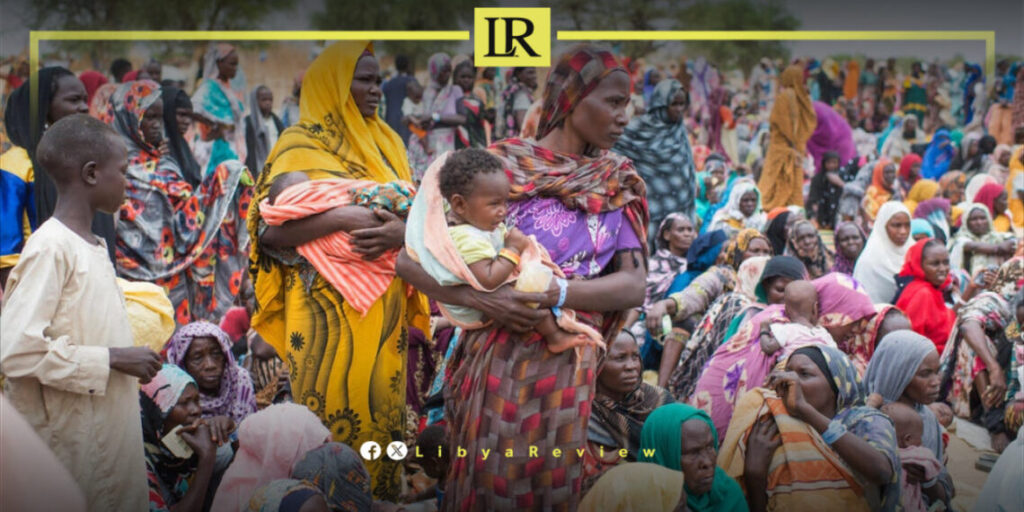
NATIONAL POLITICS AND SOCIAL ISSUES
- The United Nations Support Mission in Libya (UNSMIL) announced the start of the Security Working Group meeting, a key part of the Berlin Process, with the participation of Acting Head of the Mission, Stephanie Khoury, members of the 5+5 Joint Military Commission (JMC) +, and several ambassadors from member states. Co-chaired by the UN and France, the current session marks the first time the group convenes in Sirte, as noted in a statement posted by the mission on Facebook. In her latest briefing to the UN Security Council on 9 October, Khoury described the meeting as “an opportunity to refocus efforts on the security track.” She recalled urging the 5+5 Commission during an August meeting to “continue fulfilling its duties.”
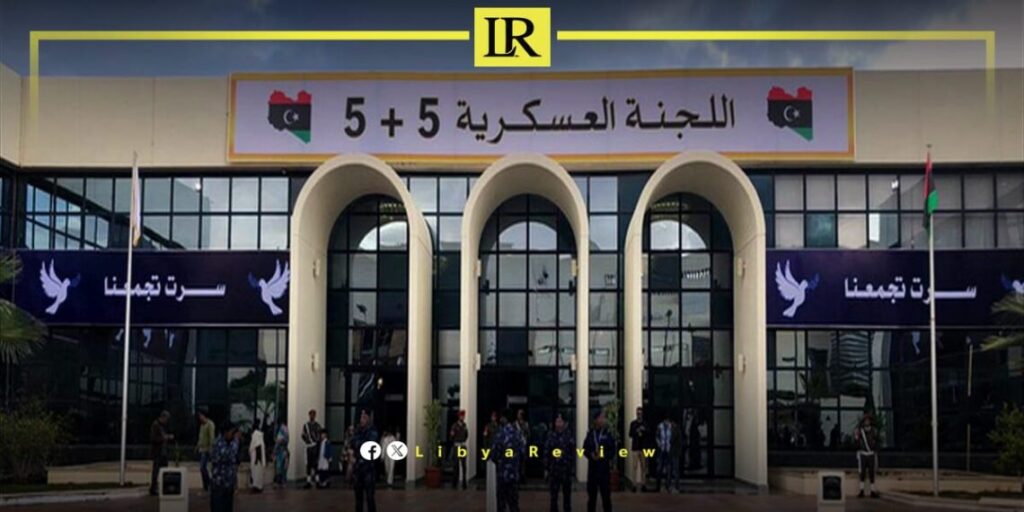
- In Benghazi, the security leadership of the Ministry of Interior, appointed by the House of Representatives under the chairmanship of Prime Minister Osama Hammad, convened an extensive meeting on Tuesday. The discussion focused on mechanisms to enhance efforts in combating drugs and mind-altering substances and strengthening security presence in the southern region. The meeting was chaired by Interior Minister Issam Abu Zreibah, and included high-level officials such as the head of the Drug and Mind-Altering Substances Control Agency, General Adel Abdel Aziz; the Director-General of the Desert Patrol Administration, General Salah Al-Khafifi; and the Director-General of the Central Support Administration, General Rafi Al-Barghathi.
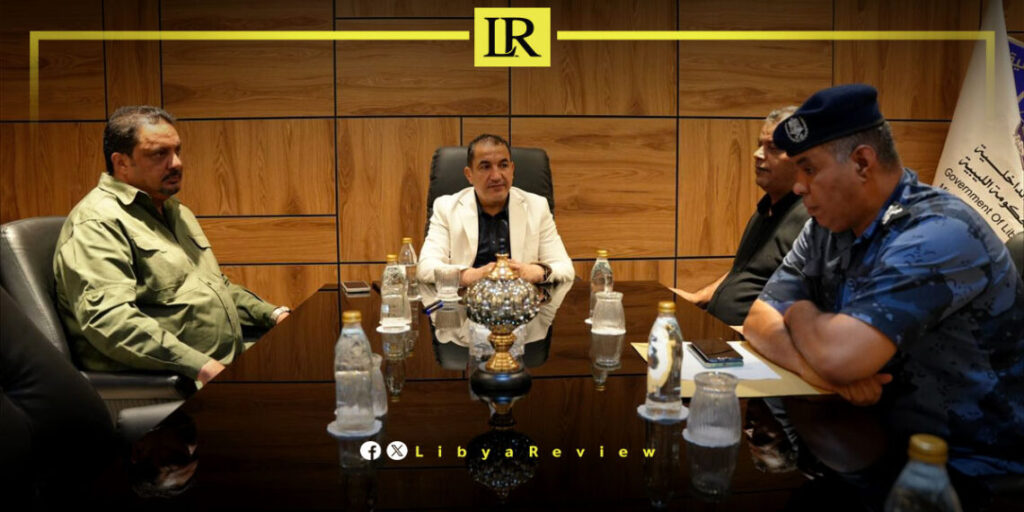
- Emad Al-Sayah, Chairman of Libya’s High National Election Commission (HNEC), received the Dutch Ambassador to Libya, Joost Klarenbeek, to discuss future support plans and assess potential challenges to the upcoming electoral process. During the meeting, the two sides reviewed HNEC’s readiness to conduct the 2024 municipal elections for the first group of councils. They explored areas of collaboration to ensure smooth electoral operations and adherence to international standards.
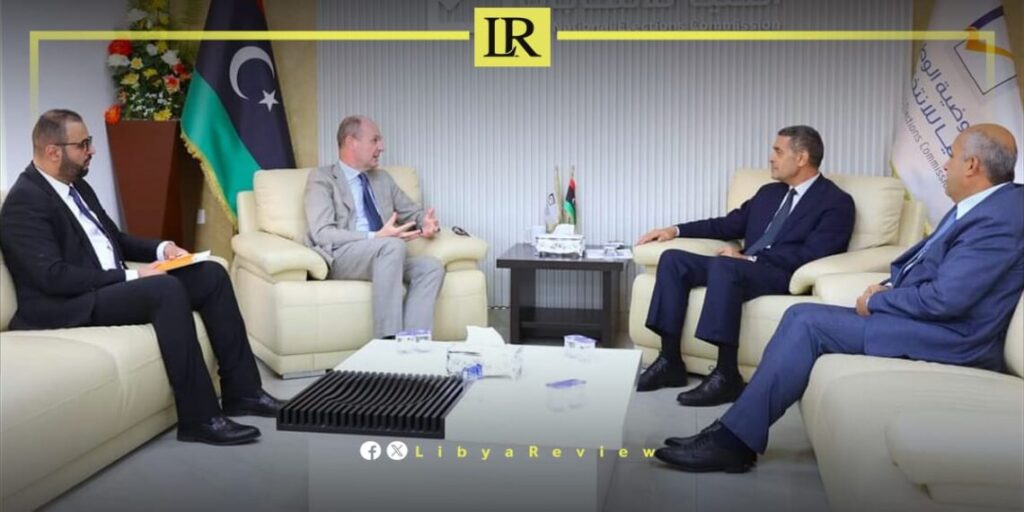
- The Chairman of the Foreign Affairs Committee in the Libyan House of Representatives, Youssef Al-Agouri, criticised what he described as “biased reports and exaggerated information” about Libya. He claimed these are part of “systematic international campaigns to distort the image of Libyan institutions.” Al-Agouri’s remarks were made during a meeting with a team formed by the House of Representatives to review and prepare a response to a report by the United Nations Human Rights Council, according to Parliament spokesperson Abdullah Belhaq. In July, during the Human Rights Council’s session in Geneva, UN High Commissioner for Human Rights, Volker Türk, urged the international community to reconsider agreements with Libya on migration issues. Türk highlighted widespread practices of human trafficking, torture, forced labour, and starvation in detention centres, where impunity prevails.
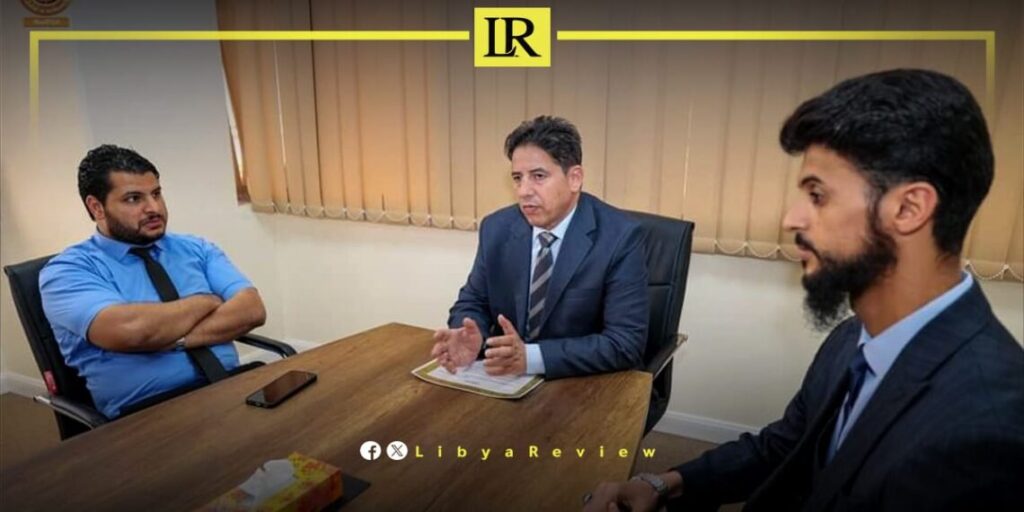
INTERNATIONAL RELATIONS
- Ali Al-Abed, the Minister of Labor and Rehabilitation of the interim Government of National Unity, discussed the registration of Pakistani labor within the ‘Wafid’ electronic system. This move aims to streamline their procedures legally and systematically. The discussion took place during a meeting with Anjum Anayat, the Pakistani Ambassador to Libya, focusing on enhancing bilateral cooperation in the workforce sector, according to a post on the ministry’s Facebook page. The talks centered around the programs and regulations governing foreign labor in Libya in accordance with Libyan and international laws, contributing to improving the work environment and benefiting both parties involved.
- China’s Acting Ambassador to Libya, Liu Jian, reaffirmed his country’s support for Libya while firmly rejecting any external interference in the nation’s affairs. Speaking to the Libyan News Agency, Liu emphasized that relations between Libya and China are currently on a highly positive trajectory, citing recent high-level meetings between officials from both countries. Liu pointed to the pivotal visit of Mohamed Al Mnifi, head of Libya’s Presidential Council, to Beijing in September 2024, where he met with Chinese President Xi Jinping during the China-Africa Cooperation Summit. The discussions focused on enhancing the strategic partnership between Libya and China.
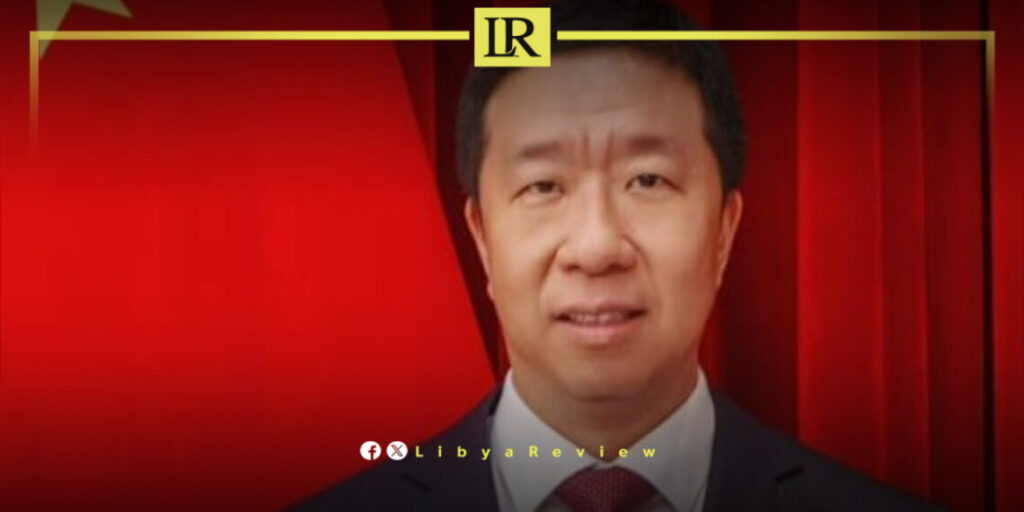
- Libya’s Deputy Prime Minister and Health Minister of the Government of National Unity, Ramadan Abu Janah, met with Tunisian Health Minister, Mustafa Al-Farjani. The meeting took place on the sidelines of the 71st session of the Regional Committee for the Eastern Mediterranean, held in Doha, Qatar. According to a statement from the Libyan Ministry of Health, both ministers emphasised the deep historical ties between Libya and Tunisia. Discussions centred on enhancing healthcare cooperation between the two countries, particularly in pharmaceutical manufacturing and the exchange of expertise.
